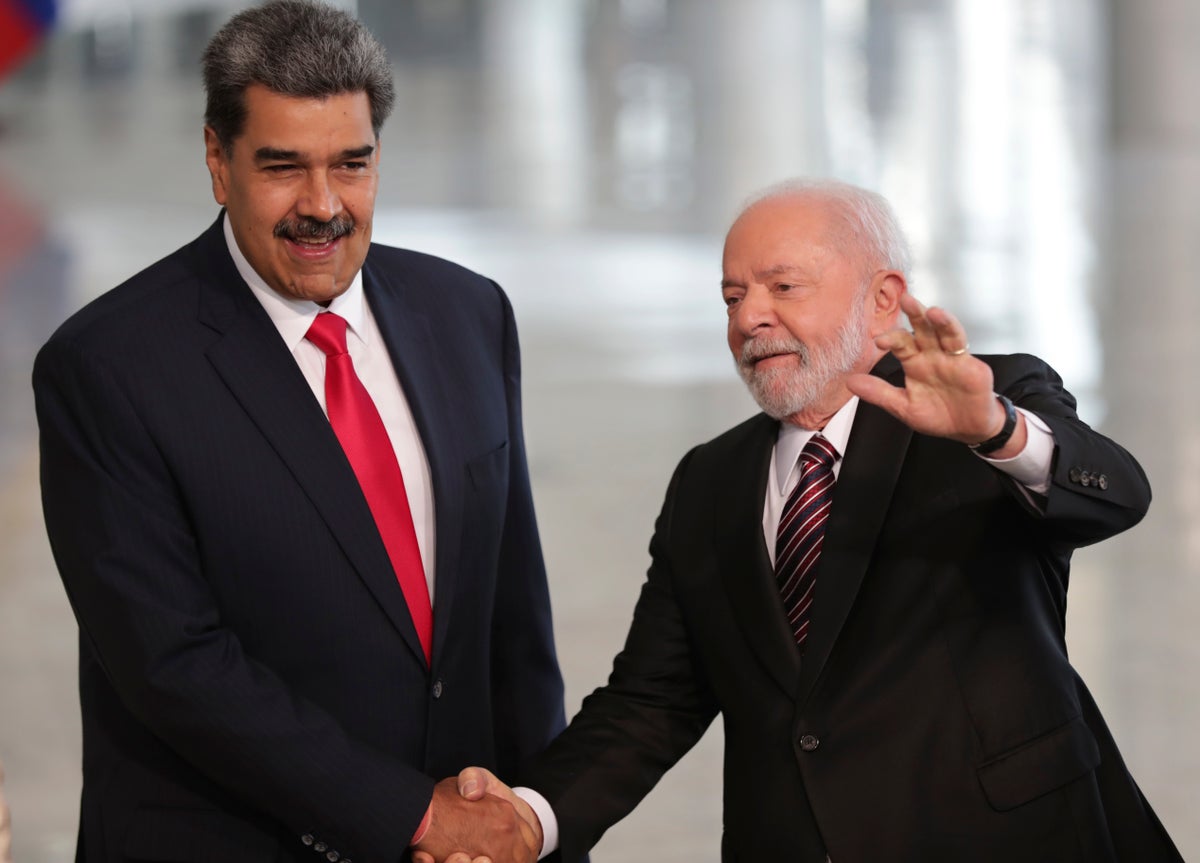
South America's leaders will gather in Brazil's capital on Tuesday as part of President Luiz Inácio Lula da Silva's attempt to reinvigorate regional integration efforts that have previously floundered amid the continent's political swings and polarization.
Analysts say Lula senses an opportunity for integration because of the political affinities of the region’s current governments and appears to want to test leaders' willingness to cooperate through a revived Union of South American Nations, or Unasur.
First established 15 years ago in Brazil's capital during the second presidential term of Lula, a former trade unionist, the regional bloc sought to integrate the 12 South American nations culturally, socially, politically and economically.
Unasur's promotor was late Venezuelan president Hugo Chávez, who saw it as means to counteract U.S. influence in the region and the group had a reputation among some as having a leftist bent.
But a subsequent swing to the right on the continent saw the group fracture. The last meeting with all Unasur’s members took place in 2014. After 2017, disagreements over Unasur's leadership and the participation of Venezuela’s authoritarian President Nicolás Maduro led seven countries to withdraw, including Brazil in 2019 under Lula’s predecessor, the far-right Jair Bolsonaro.
“Unasur’s greatest problem is that it was built in a moment when there were leftist leaders, and it shattered when right-wing leaders came along,” said Oliver Stuenkel, an international relations professor at Getúlio Vargas Foundation, a university and think tank in Sao Paulo. “It is easy to talk about its comeback now, but they need to think of ways to make this second attempt last.”
Tuesday's meeting in Brasilia will bring together 11 South American presidents and the leader of the Council of Ministers of Peru, whose president, Dina Boluarte, faces charges and cannot leave the country. The meeting has been officially promoted as an encounter for South American heads of state, as Brazil does not wish to impose Unasur's revival, officials say.
The challenge, analysts say, will be having a bloc that can survive the region's political shifts and instability.
While the majority of South America’s current presidents are leftist or centrist, there’s no guarantee the situation will remain that way. This was underscored in May by the success of Chile's far-right in a vote to select commission members to write a new constitution. That success came on the heels of voters' rejection of a leftist-influenced draft to replace the Chile's dictatorship-era charter. A similar swing toward the right is possible in Argentina, given that incumbent President Alberto Fernández will not seek reelection this year amid rampant inflation.
The Brasilia gathering will see the first official bilateral meeting between Lula and Venezuela's Maduro, according to a source at Brazil’s foreign relations ministry. The person was not authorized to speak publicly and spoke on condition of anonymity.
Asked about the possibility of the bilateral meeting, Ambassador Gisela Padovan, Secretary for Latin America and Caribbean at the Ministry of Foreign Affairs, said it had not yet been established.
Under Bolsonaro, Brazil prohibited Maduro and many members of his government from entering the country, and it recognized opposition leader Juan Guaidó as the legitimate president of Venezuela.
“No matter if both governments agree with each other, Venezuela is a neighbor and can’t be ignored or have diplomatic ties broken, as we have practical issues that need to be solved," said Carolina Silva Pedroso, an international relations professor at Sao Paulo’s Federal University.
Pedroso said Brazil could be a mediator in Venezuela’s political crisis, and it wants to reduce the number of immigrants crossing the border into Brazil, more than 400,000 since 2018.
But the group must overcome its legacy and struggles.
Unasur “couldn't lead important projects in cooperation in diverse areas after some governments were electorally defeated,” said Pedroso. “And it did not establish a direct connection with the populations in its countries."
The politically instability in many South American countries will make it hard for leaders to move initiatives forward, analysts said.
Stuenkel said Brazil will want to guarantee that all the presidents meeting have some sort of diplomatic relationship, "but this will crash when a new president comes in."
"Countries in the region need to think how they will react when Argentina breaks, or if any bilateral crisis evolves, such as Colombia and Peru’s conflict in the border,” he said.
Peru's image has been damaged by criticism of Boluarte after her office violently repressed antigovernment protests following the ouster of her predecessor, Pedro Castillo.
Colombia, now governed by a leftist, has been critical of Boluarte's government and both countries have cut diplomatic relations. They also hold a century-long dispute along their shared border over territory and responsibilities to halt drug trafficking.
Ecuador faces political instability which grew stronger in May, when president Guillermo Lasso dissolved parliament after facing an impeachment inquiry. New general elections are scheduled for later this year.
“A Unasur without 12 countries would not solve the region’s issues,” said ambassador Padovan. "And we need something permanent that does not depend on particular governments.”







